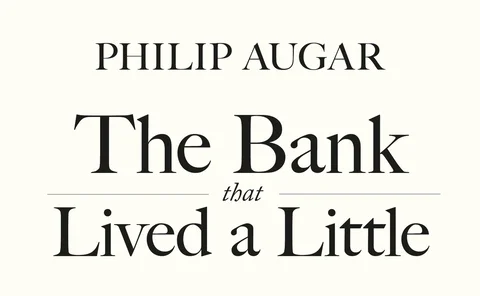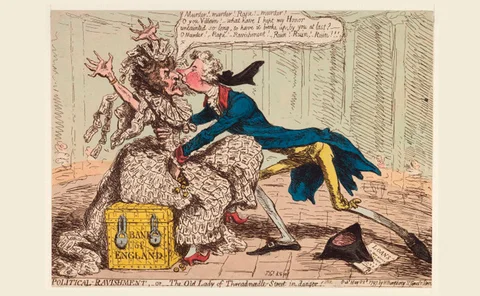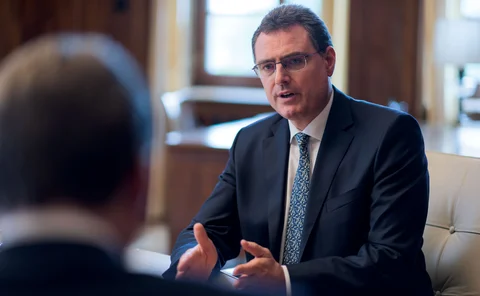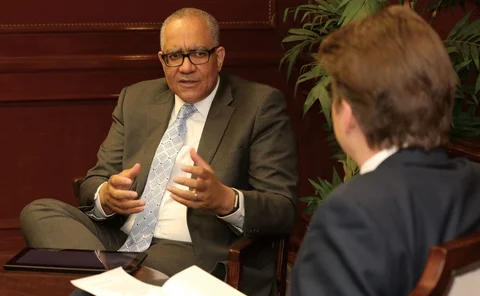CB In Depth
Book notes: Macroprudential policy and practice, edited by Paul Mizen, Margarita Rubio and Philip Turner
An important overview of the current state of thinking about macro-prudential policy, but uncertainties remain about the current allocation of financial stability responsibilities
Beyond payments: central bank digital currency
The issuance of central bank digital currencies, such as Sweden’s proposed e-krona, could facilitate monetary policy beyond the zero lower bound
Book notes: The Fed and Lehman Brothers, by Laurence Ball
Ball claims the Fed could have lent to Lehmans, lawfully and prudently, had it chosen to do so, writes Reddell. But agreeing the Fed could have provided liquidity support does not automatically imply it should have
The EU tries to rethink its faltering AML regime
The European Union plans to centralise its anti-money laundering efforts following a series of scandals this year. Dan Hardie looks at the options available and the multitude of challenges that remain
Book notes: The bank that lived a little, by Philip Augar
History of British commercial bank Barclays fails to address key questions, writes Michael Taylor
Tunisia’s El Abassi on central banking during a regional security crisis
Central Bank of Tunisia’s governor talks about capacity building, evolving relations with the IMF, integration among the Arab states and using technology to foster inclusion
What next for the BoJ’s unprecedented ETF experiment?
No other central bank has attempted such purchases, and exiting the policy may prove extremely challenging, says Sayuri Shirai
Demetriades on political pressures on central banks and their governors
Former governor of the Central Bank of Cyprus speaks about the Cypriot banking crisis, the need for EU-wide AML oversight, independence and his fears for stability of the monetary union
Juan José Echavarría on Colombia’s path to sounder monetary and economic policy
The governor of the Central Bank of Colombia talks about policy efforts to promote stability, the importance of independent institutions and the implications of Venezuela’s economic collapse
The Bank of England’s missing records
Central banks need to implement robust archiving frameworks, should they want to maintain public trust and learn from the lessons of the past, writes former Bank of England official historian Forrest Capie
The battle for cyber resilience
The cyber attack on Bangladesh Bank prompted central banks around the world to change their approach and refocus on contingency planning, but are they ready now?
James Bullard on 2% rates, tariffs and Fed leadership
The president of the Federal Reserve Bank of St Louis speaks about the impact of US trade policies, the disruption to the banking industry from Silicon Valley, shrinking the Fed balance sheet and the potential for agent-based modelling
The perilous road to normality
Many central banks are starting to tighten policy, but their room for error is limited and their final destination unclear. What more can they do?
Book notes: Till Time’s Last Sand, by David Kynaston
Kynaston allows readers to develop their own understanding of how the BoE has had to refind its place in a country where the political system has migrated from commercial republic to full-franchise democracy
Switzerland’s Jordan on extraordinary monetary policy and sovereign money
The Swiss National Bank governor speaks about currency intervention, negative rates, sovereign money and the diversification of reserves
A real-time payments revolution in Asia
Asian central banks have encouraged the development of instant payment systems to defend monetary policy transmission and counter cryptocurrency usage
Book notes: American default, by Sebastian Edwards
Edwards’ book is fascinating, well written and enjoyable, and provides an account of one of the US’s forgotten chapters of history
Is the pursuit of a common accounting standard for monetary gold a fool’s errand?
More consistent accounting for monetary gold could address transparency concerns and help smaller emerging economies to achieve greater independence by clarifying treasury transfers
Book notes: Unfinished business, by Tamim Bayoumi
Anand Sinha praises Bayoumi’s analysis of how the euro crisis and US housing crash were, in fact, intertwined
Bank of Jamaica’s Wynter on the path to inflation targeting
Bank of Jamaica’s governor talks about revamping accountability, communications and operations as the central bank embraces inflation targeting
Alternatives to Japan’s 2% flexible inflation target
The Bank of Japan may review its policy framework, given its five-year failure to hit a 2% flexible inflation target
Book notes: Edge of chaos, by Dambisa Moyo
John Chown applauds Moyo’s analysis of how the current democratic framework is failing
Federico Sturzenegger on Argentina’s efforts to create a credible central bank
The Central Bank of Argentina governor, in his last interview before leaving office, speaks about panic in emerging markets, the IMF bailout, and bringing to an end high inflation and monetary financing
Have central banks created a ‘debt trap’? No, but ...
Tougher regulation has helped ensure extraordinary monetary policy has not caused a dangerous rise in private debt























